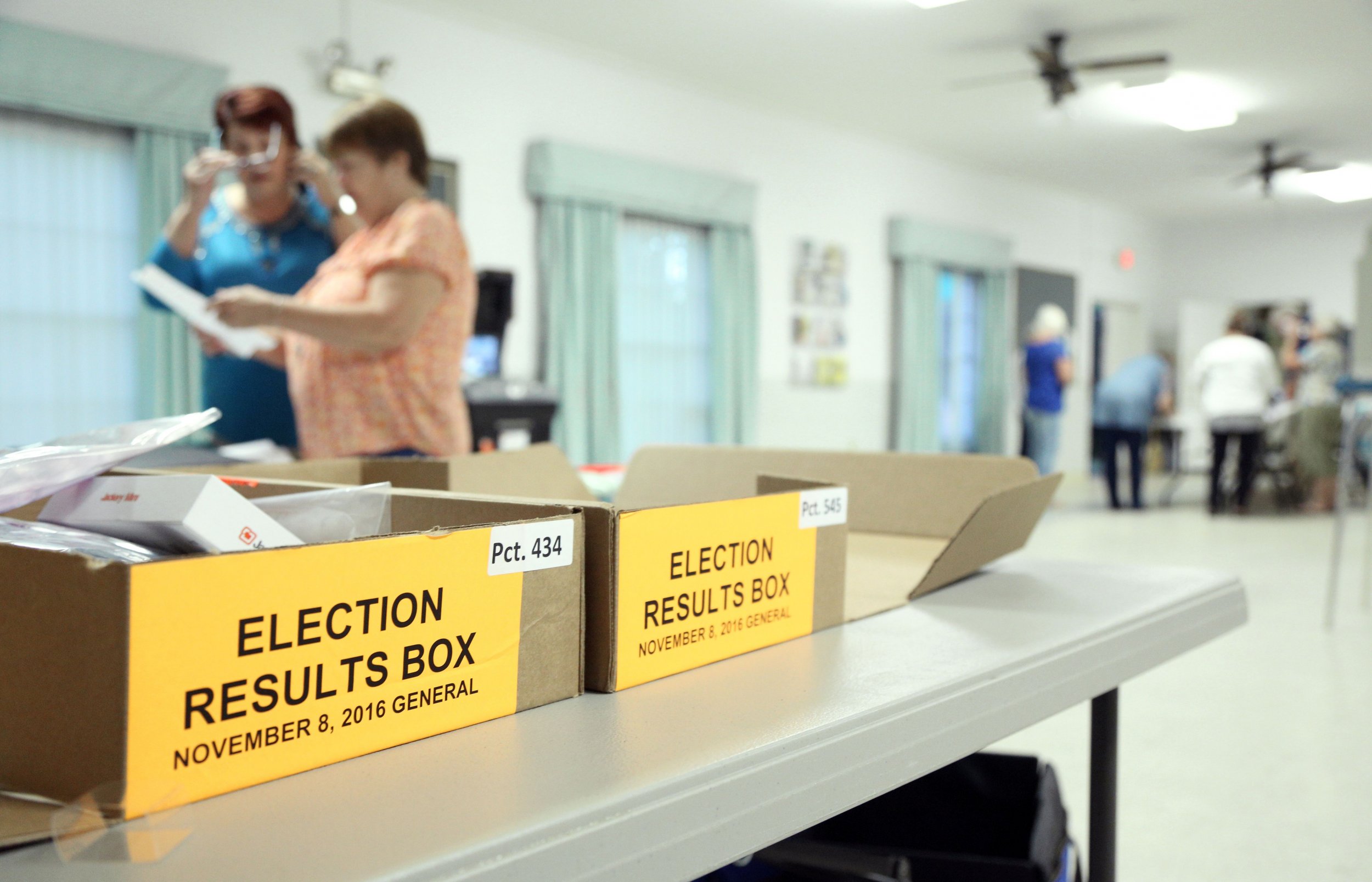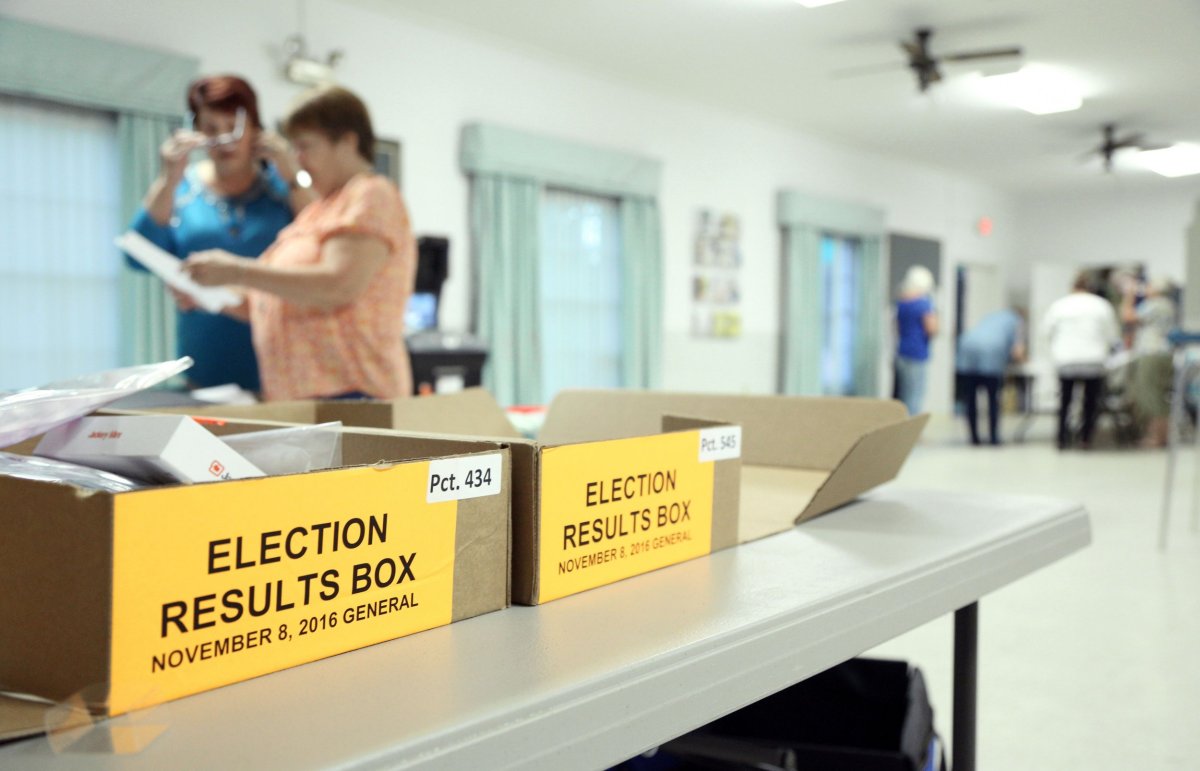
The FBI accused Russia of hacking into a Florida county government network, just ahead of the 2016 presidential election, through the use of an elaborate spear-phishing scheme, according to the newly released report from special counsel Robert Mueller.
The report, made public Thursday in a redacted version, was the outcome of a nearly two-year investigation into the possibility that President Donald Trump's campaign may have colluded with Russian officials to influence the election in his favor. Mueller ultimately found no evidence of conspiracy.
The report did, however, confirm previous U.S. intelligence accusations that the Russian military's Main Directorate of the General Staff—still widely referred to by its Soviet-era name, the Main Intelligence Directorate (GRU)—tried to affect the outcome of the race. It also revealed FBI intelligence regarding a specific case in the crucial swing state of Florida.
GRU Unit 74455 allegedly "sent spearphishing emails to public officials involved in election administration and personnel involved in voting technology" by targeting software vendors that deal with voter databases.
"Spearphishing" refers to the practice of trying to deceptively obtain sensitive data—like login information or financial records—through targeted messages, often in the form of emails that may appear to be legitimate.
The report claims that the GRU "sent spearphishing emails to over 120 email accounts used by Florida county officials responsible for administering the 2016 U.S. election" but that this portion of the investigation was handled separately by the FBI.
"We understand the FBI believes that this operation enabled the GRU to gain access to the network of at least one Florida county government," the report said. "The Office did not independently verify that belief and, as explained above, did not undertake the investigative steps that would have been necessary to do so."

The name of the software company in question has been redacted in the Mueller report, but leaked National Security Agency documents published in 2017 by The Intercept suggested Tallahassee, Florida-based VR Systems may have been the victim. The company—used by eight states, including 64 of 67 Florida counties—has repeatedly denied any breach of data, though it announced a security overhaul in October 2018 "in the wake of cybersecurity threats to the elections community."
In a statement published Thursday VR Systems said "its number one priority is and has always been ensuring the integrity of the elections process."
"We engage top cyber security experts to continuously monitor our systems and provide best-in-class technology, training and support to elections officials across the country," it added. "Immediately after the spear phishing attempt, VR Systems implemented a comprehensive program to ensure integrity in elections. This included engaging a leading global cyber security firm to consult, test and monitor VR's systems and servers, and a host of best practices and training with employees and customers."
The company further stated that it was "the first elections vendor to complete a Risk Vulnerability Assessment (RVA) by the Department of Homeland Security," while noting "that no system is ever completely secure and we work tirelessly every day to protect our systems and our customers."
In August 2018, then-Florida Senator Bill Nelson, who served on the Senate Subcommittee on Cybersecurity, told the Tampa Bay Times that Russian hackers have "already penetrated certain counties in the state, and they now have free rein to move about." The claim was controversial among authorities, and the Florida Department of State told Newsweek at the time that it received "zero information from Senator Nelson or his staff that support his claims."
The department reiterated its position on Thursday. In a statement sent to Newsweek, the Florida Department of State wrote: "Upon learning of the new information released in the Mueller report, the Department immediately reached out to the FBI to inquire which county may have been accessed, and they declined to share this information with us."
"The Department maintains that the 2016 elections in Florida were not hacked. The Florida Voter Registration System was and remains secure, and official results or vote tallies were not changed," the statement read.
It added: "In 2017, the Department of Homeland Security (DHS) notified the Department that Florida was unsuccessfully targeted by hackers in 2016. Since 2016 when elections were designated as critical infrastructure, state and local election officials in Florida have invested millions of dollars in election security. These investments, coupled with our strong partnerships with federal and state agencies, has made Florida one of the leading states in the country on election cybersecurity."
Mueller's findings also included previously reported allegations of Russian intrusion into the U.S. voting system. This includes a June 2016 incident in which "the GRU compromised the computer network of the Illinois State Board of Elections by exploiting a vulnerability in the SBOE's website."
The report added: "The GRU then gained access to a database containing information on millions of registered Illinois voters, and extracted data related to thousands of U.S. voters before the malicious activity was identified."
The allegation was part of an indictment served last July by Mueller against Russian intelligence agents, alleging they gained access to a target identified only as "SBOE No. 1." Illinois SBOE spokesperson Matt Dietrich reacted by saying, "We think it's very likely that we are SBOE No. 1," according to the Chicago Sun-Times.
Russia has rejected claims that it pursued a state-sponsored conspiracy to influence the 2016 presidential election. Asked about the imminent release of Mueller's report earlier Thursday, Kremlin spokesman Dmitry Peskov told reporters that his country has "more interesting and important things to do."
Update (04/18/19 4:57 p.m.): This story was updated with statements provided by VR Systems and the Florida Department of State.
Uncommon Knowledge
Newsweek is committed to challenging conventional wisdom and finding connections in the search for common ground.
Newsweek is committed to challenging conventional wisdom and finding connections in the search for common ground.
About the writer
Based in his hometown of Staten Island, New York City, Tom O'Connor is an award-winning Senior Writer of Foreign Policy ... Read more
To read how Newsweek uses AI as a newsroom tool, Click here.






